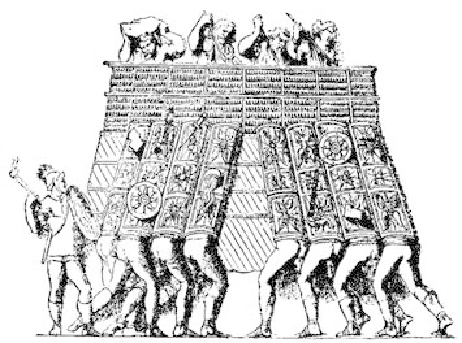Travel Reference
In-Depth Information
pire with vision and firmness. Augustus, the first of Rome's emperors, could boast that
“...he had beautified the city with magnificent buildings…encouraged religion by build-
ing temples and shrines; strengthened morality… by imposing strict laws; and established
peace which endured through his long reign.”
[47]
ROMAN GODS
In ancient Roman religion, the “genius” (Latin: the begetter) was the ruling spirit that per-
petuated a household or family. It came to mean the guardian spirit of a guild, a place or
an individual, which a person might worship on his birthday. After Augustus, the “genius”
of an emperor might be worshiped. The spirit of a woman or a goddess was known and
worshiped as “Juno.”
[48]
As might be expected, Rome's religious beliefs and practices changed during the long
years of the republic and the empire. Much mythology of ancient Greece was incorporated
into Roman belief, and as the empire extended into the Near East, other gods and rituals
made their way to Rome. But there is a fairly constant core to Rome's religious beliefs and
practices. Today's wise traveler continues to confront them in statues and paintings.
Figure 5.2. Roman Testudo, Military of Ancient Rome
For the protection of the household, Romans continued to honor the gods who domin-
ated the lives of their farmer ancestors. They gave deference to Vesta, the guardian spirit of
the fire in the hearth. Lars was guardian of the household, and Janus (
janua
: door), whose
two heads look in both directions, was guardian of the household door. Penates (gods of
the Greeks) were renamed and given pride of place in the Roman pantheon (
pan
: all;
theos
:


Search WWH ::

Custom Search